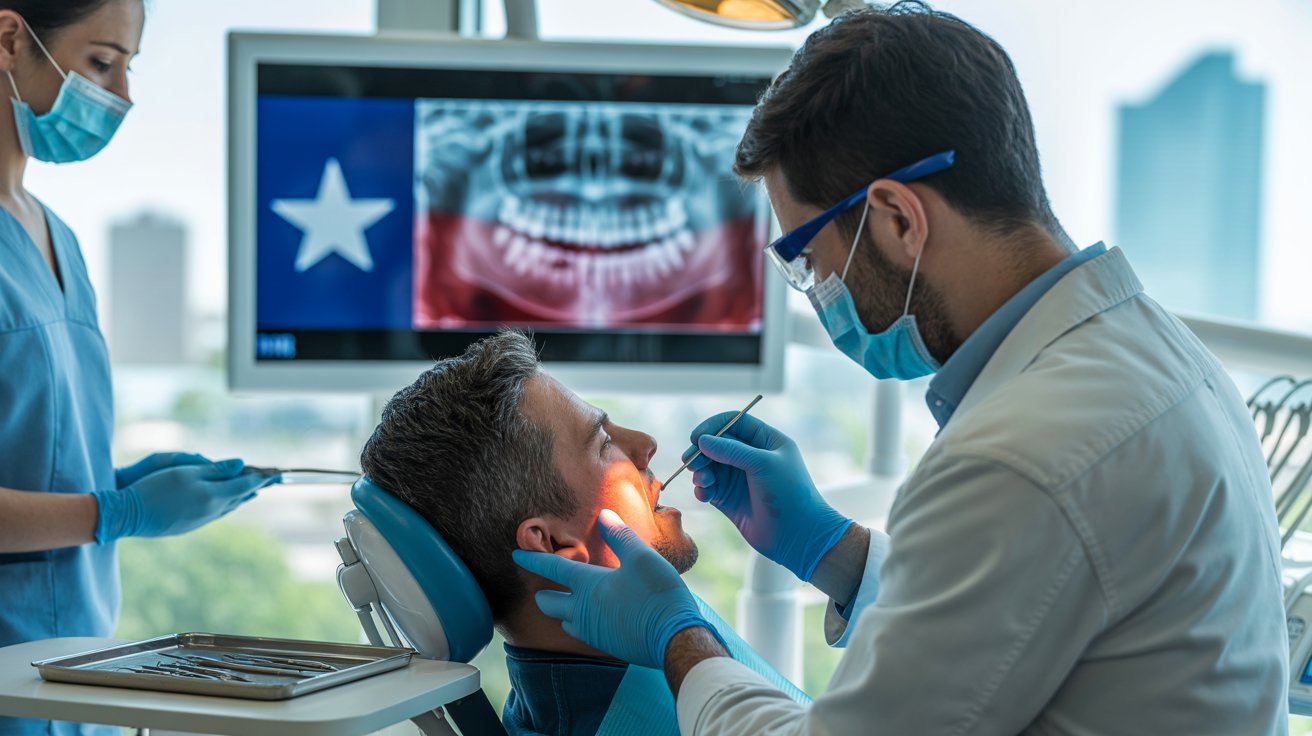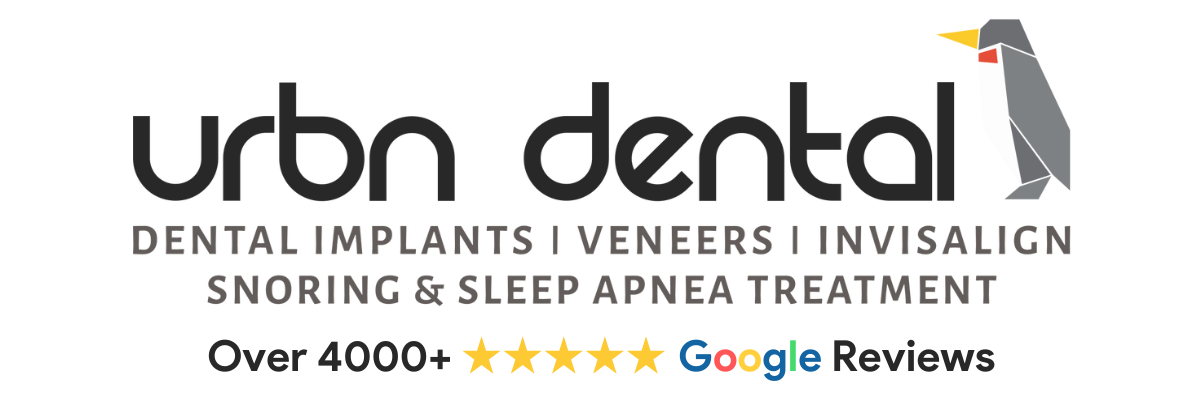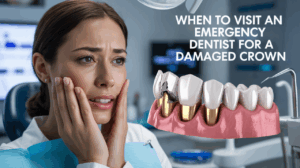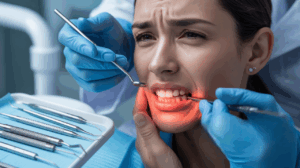
A swollen mouth might seem like a minor issue. But sometimes, it’s a sign your body may be signaling a serious underlying issue. Oral swelling can be triggered by a deep infection, trauma, or an abscessed tooth that may be painful and under pressure. If left untreated, swelling can sometimes spread, affect your bite or appearance, and in rare cases, impact breathing.
Our emergency dental services Houston TX deal with these cases daily. This blog walks through how our emergency dentists manage swelling, what you can do first, and why acting promptly often matters in these cases.
What Is Oral Swelling?
Oral swelling refers to any abnormal enlargement or inflammation in the mouth, gums, cheeks, or jaw. It might appear suddenly or build slowly over time. The causes vary, from an infected wisdom tooth to a cracked crown, or even food particles lodged deep in the gumline.
At first, it may just feel like discomfort. But then the pain kicks in, or your face starts to swell on one side. Talking, eating, and even smiling may become a challenge.
Not sure if your swelling needs treatment? Book a quick evaluation with our Houston clinic.
When Is Oral Swelling Considered an Emergency?
Often, swelling is manageable with at-home care. But sometimes, it crosses into an emergency situation.
Here’s when to stop guessing and head to our emergency dental clinic:
- Swelling that spreads to the face or neck
- Fever along with pain or redness
- Difficulty swallowing or breathing
- Rapid swelling within a few hours
- Throbbing pain that interrupts sleep
- Bleeding or pus discharge from the gum or tooth
If you feel any of these symptoms, consider our “walk in dentist Houston TX.”
How Emergency Dental Services Houston TX Treats Swelling
Not every clinic is equipped to handle walk-ins, weekend visits, or oral swelling emergencies. That’s where Emergency Dentist Houston TX steps in, with treatments tailored for urgent cases.
Here’s what we commonly treat when patients show up swollen and in pain:
1. Wisdom Tooth Issues
Impacted or infected third molars often lead to swollen cheeks or jawlines. If there’s no room to grow, pressure may build, which may lead to infection. Quick imaging, drainage if needed, and surgical removal may be recommended.
2. Damaged Crowns
If a crown cracks or falls out, the exposed tooth beneath can become infected. Swelling sets in quickly, especially if decay was already present. Temporary crown placement or re-cementing is usually part of the fix.
3. Periodontitis Flare-Ups
Advanced gum disease may cause swollen, bleeding gums and jaw tenderness. Emergency cleanings, antibiotics, and scaling may be required right away. Especially if pain and fever are involved.
4. Broken Tooth Emergencies
Fractured teeth leave the pulp exposed, which can increase the risk of infection. The result? Swollen gums, sharp pain, and risk of abscess. Treatment could mean bonding, a crown, or, in serious cases, root canal therapy.
5. Abscessed Teeth
This is one of the most urgent swelling-related conditions we see. Abscesses are pockets of pus caused by bacterial infection. They could be painful, can sometimes spread quickly and may require surgical drainage. Antibiotics and root canal follow.
Step-by-Step: How Dentists Manage Oral Swelling Emergencies
So, you walk into our emergency dental clinic, cheeks puffed up, in serious discomfort. What happens next? It’s a structured approach, but flexible enough to respond to your unique case.
1. Patient History and Symptoms Check
We ask detailed questions, such as when the swelling started, how fast it progressed, and whether you’ve had fevers, chills, or trauma.
2. Visual and Digital Exam
We inspect the mouth physically and use digital imaging, such as X-rays. Swelling may hide what’s underneath, like root infections or fractures. We need the full picture.
3. Drainage of Abscess or Swollen Area
If there’s a visible abscess or pus pocket, drainage is often the first step. It relieves pressure and prevents further spread. This part may feel unpleasant, but relief is often felt after this step.
4. Prescribing Medication
Antibiotics are prescribed if there’s an active infection. Pain management, too. But make no mistake: meds are a support tool. They don’t replace in-office treatment.
5. Definitive Treatment
Once the swelling stabilizes or drains, the real work begins. That could mean a root canal, extraction, crown placement, or gum treatment, depending on the cause.
Worried about the process? Speak with our team to understand your next steps.
What to Do Before Reaching the Dentist
Oral swelling is not something to sit on. But before you reach us, a few things might help manage the discomfort:
- Rinse gently with warm salt water
- Apply a cold compress to the cheek (not inside the mouth)
- Avoid lying flat, sleep slightly elevated
- Don’t poke or press the swollen area
- Avoid spicy, hot, or hard foods
- Take OTC pain meds like ibuprofen
Reminder: These are temporary measures. Come in for a full check-up as soon as possible.
Why Choose Us for Emergency Dental Care
At Emergency Dentist in Houston, we aim to offer precision. We see swelling cases every day, and try to act quickly to prevent long-term issues. Our clinic uses advanced tools, same-day diagnostics, and on-the-spot solutions to get you on the path to healing.
We’re the walk-in dentist Houston TX residents trust when the swelling starts and time is short.
Final Thoughts
Oral swelling may need timely care to prevent complications. Because the puffiness may be caused by infection, trauma, or a complication waiting to get worse.
At Emergency Dentist in Houston, we aim to treat proactively and according to your individual case.
Book your emergency appointment today.
Frequently Asked Questions
Can oral swelling go away without treatment?
In very rare cases, swelling may temporarily reduce, but the underlying cause, infection, decay, or injury, will remain. Without dental care, the issue often returns worse.
How do I know if my oral swelling is dangerous?
If swelling spreads, includes fever, or causes trouble breathing or swallowing, it is best to call our emergency dental clinic. It’s better to get checked than to take risks.
Are emergency dental services Houston available on weekends?
Yes. Our emergency dental services Houston TX include Saturday hours, from 8 am to 2 pm.
Is swelling always a sign of infection?
Not always, but it’s a common cause. Other reasons include trauma, blocked salivary glands, or allergic reactions. But don’t try to diagnose it yourself. Let our Emergency Dentist in Houston check.




